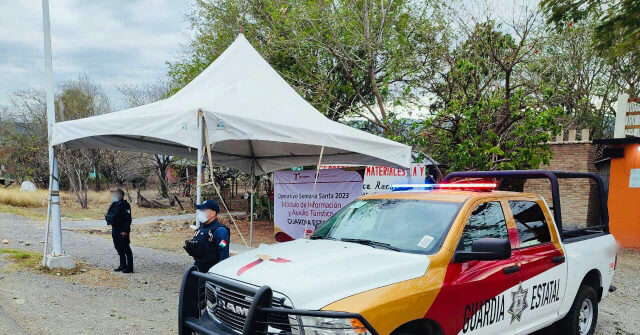A former special forces police officer in Tamaulipas, Roy “El Marino” James, has garnered notoriety for his dual roles as both a law enforcement official and, more recently, a leader within the Gulf Cartel, a notorious drug trafficking organization in Mexico. James, who allegedly turned his back on his law enforcement duties, was significantly implicated in violent activities primarily occurring in central Tamaulipas, particularly affecting the cities of Jimenez, Abasolo, and Soto La Marina. His criminal undertakings have drawn the attention of federal and state authorities, ultimately leading to his arrest during a raid that highlighted the complexities of corruption and allegiance within the ranks of law enforcement and organized crime in the region.
In an operation executed in Ciudad Victoria, the capital of Tamaulipas, authorities arrested James this week in the Hacienda Del Bosque neighborhood. The raid resulted in significant findings, including weapons, explosive devices, and drugs, which underlined James’s deep involvement in illicit activities as a leader of the Gulf Cartel. His capture became symbolic of the ongoing struggle between law enforcement and drug trafficking organizations, as his transition from a police officer to a cartel leader exemplifies the blurred lines often present in the fight against organized crime in Mexico. Despite his prior service in the Tamaulipas State Police’s special forces unit known as GOPES, the timeline of when he became aligned with the Gulf Cartel remains unclear, raising questions about the capacity for corruption and the potential infiltration of drug cartels within governmental institutions.
James’s involvement with the Gulf Cartel was further elucidated by his leadership role in the Ciclones cell, one of the cartel’s factions primarily based out of Matamoros, Tamaulipas. This faction, along with its counterparts, the Escorpiones, played a significant part in dominating criminal enterprises in Northern Tamaulipas. Reports indicate that James played a decisive role in a substantial campaign within the central region of Tamaulipas, where both his faction and the Escorpiones successfully displaced the Cartel Del Noreste faction of Los Zetas. This power shift indicates not only an escalation of violence in a region already rife with conflict but also reflects the ongoing battle for control among various factions within the drug trafficking hierarchy.
The ramifications of James’s arrest extend beyond just his individual case; they underscore the ongoing challenges faced by Mexican authorities in combating organized crime effectively. Following the raid, he was moved to a federal detention center where he will await hearings on an array of charges including drug trafficking and possession of weapons. The authorities’ swift action in capturing a high-ranking cartel member may serve as a morale booster for police forces, yet it also highlights the persistent issues of violence, public safety, and corruption that plague the region. The continuing struggle to root out criminal elements within law enforcement complicates efforts to stabilize the region and protect communities from the impacts of cartel violence.
The complexity of James’s situation—the movement from lawman to lawbreaker—exemplifies the precarious nature of policing in areas overwhelmed by drug cartels. As the state of Tamaulipas continues to grapple with ongoing violence, the intermingling of police officers with criminal organizations like the Gulf Cartel raises alarm about the integrity of law enforcement in Mexico. These developments illustrate the challenges faced by authorities in disbanding cartel operations and curbing violent crime. This scenario also emphasizes the importance of strengthening police accountability and community safety measures to restore public trust and dismantle the pervasive influence of organized crime.
In summary, the arrest of Roy “El Marino” James serves as a potent reminder of the challenges Mexican authorities face in their battle against drug cartels. His transformation from a supposed protector of the law to a violent cartel leader illuminates the rampant corruption within law enforcement and the significant impact of organized crime on public safety in Tamaulipas. With the ongoing conflict over territory and control among various cartel factions, the work of authorities remains crucial in mitigating violence and restoring order, underscoring the need for comprehensive strategies to address these systemic issues within both law enforcement and society as a whole.

